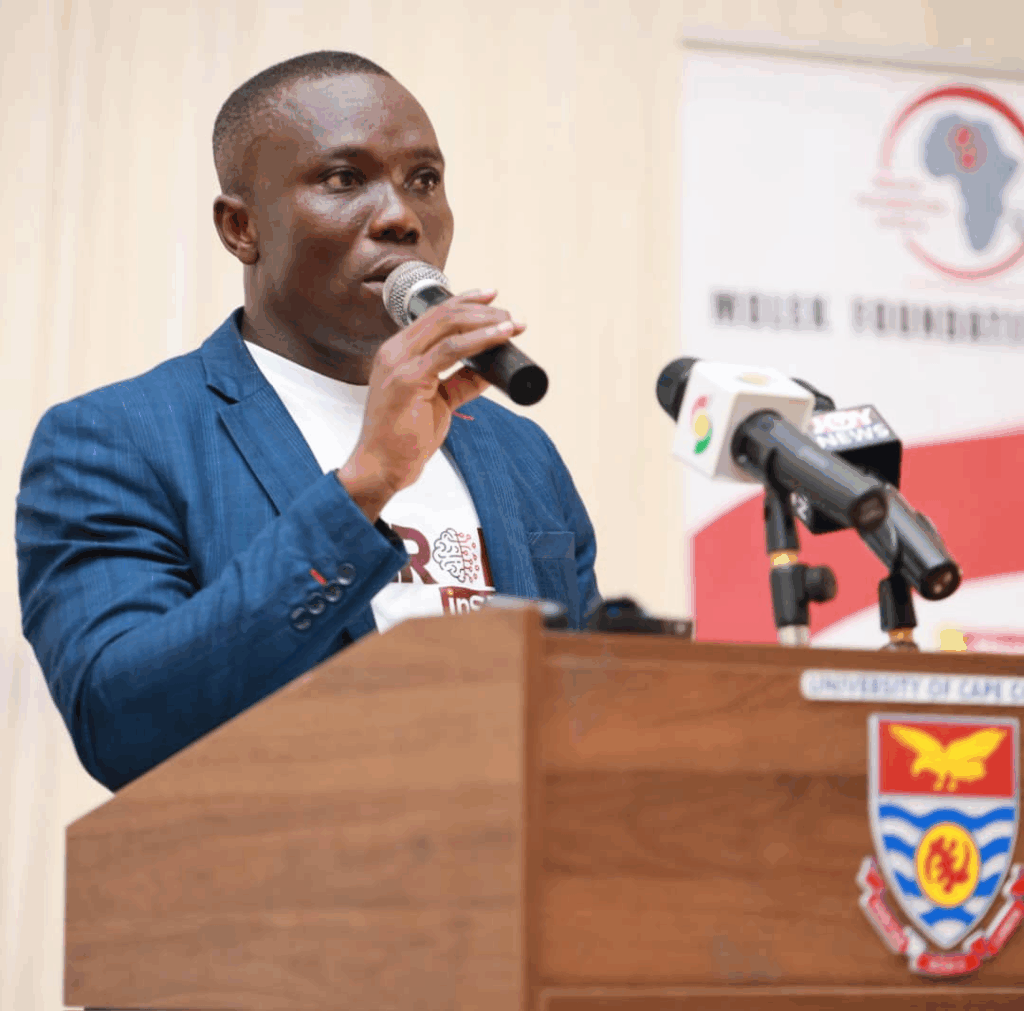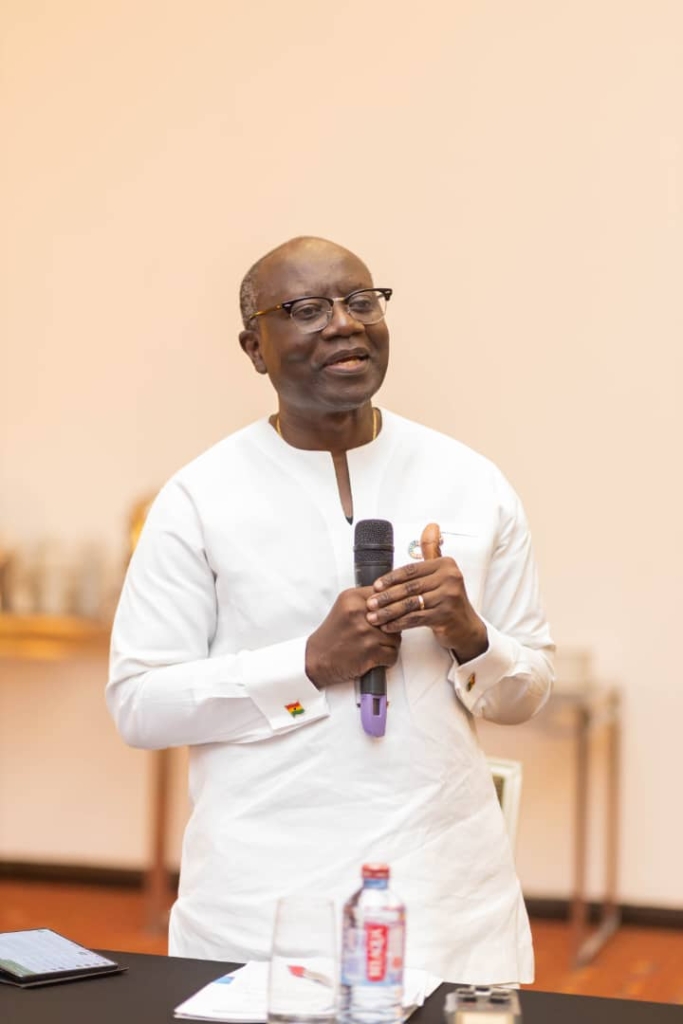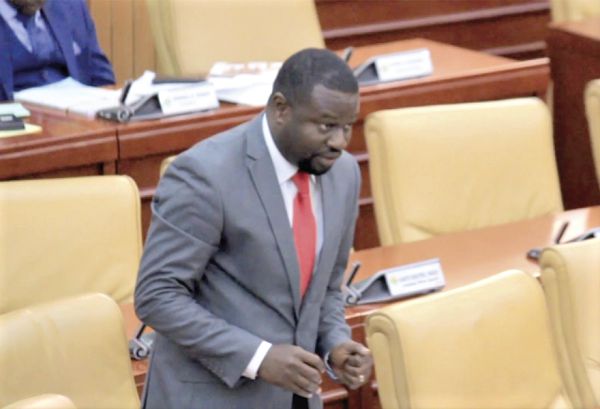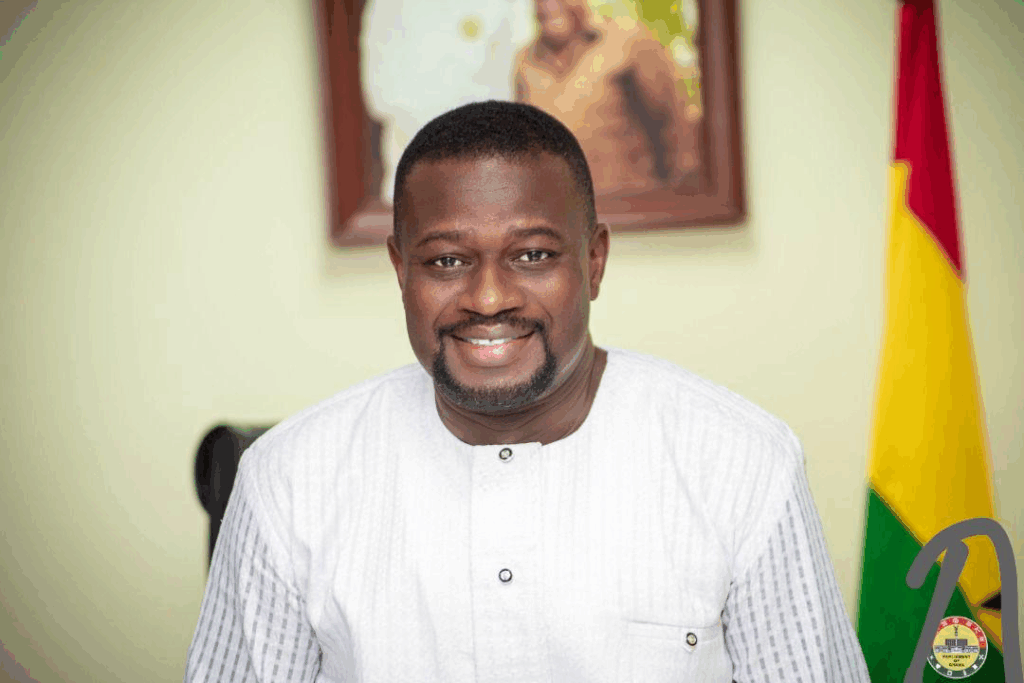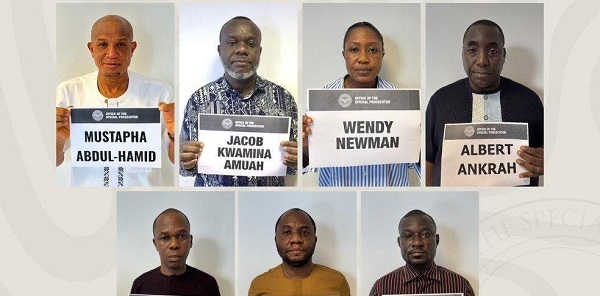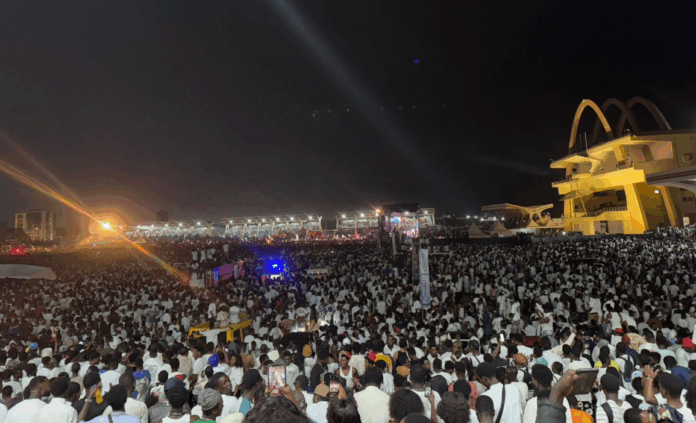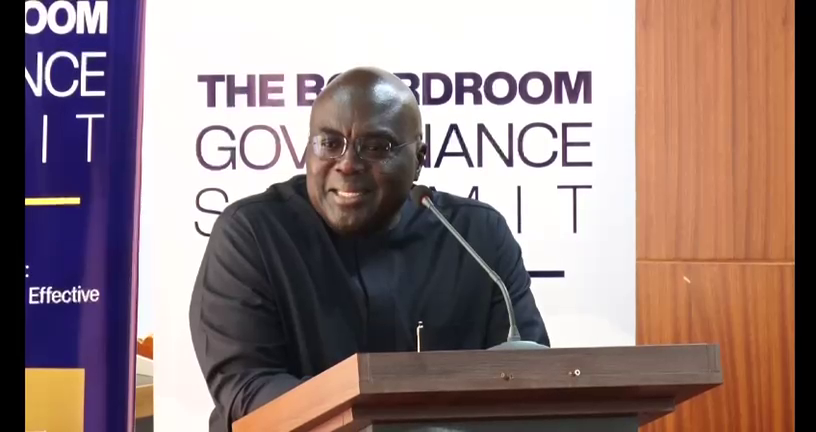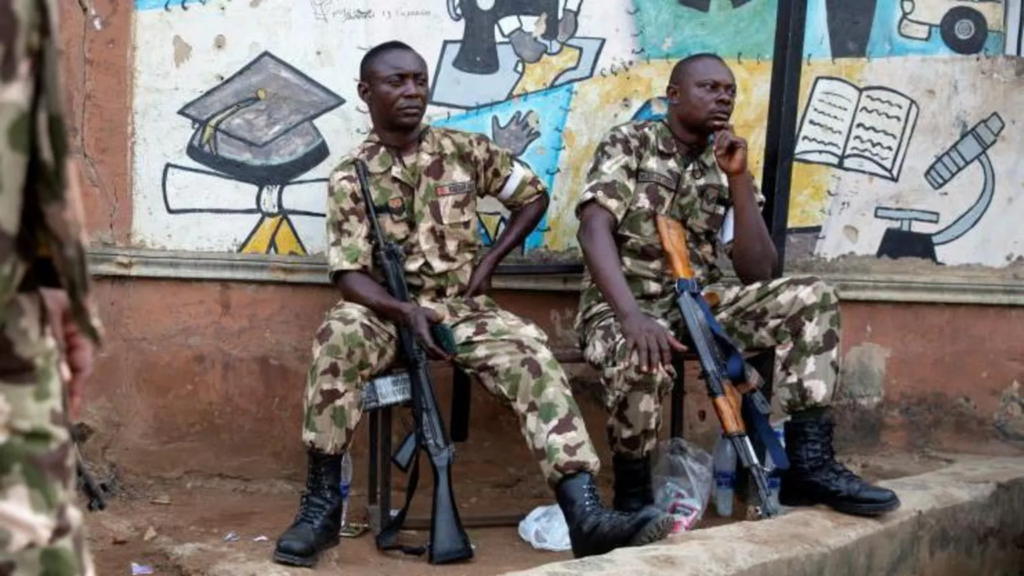Mr. Speaker,
There comes a defining moment in the life of every nation when progress can no longer be measured by the grandeur of its skylines or the length of its highways, but by the harmony it achieves between humanity and nature. Ghana stands today at that crossroads. Our cities — once symbols of vitality and promise — are straining under the weight of their own success. The streets of Accra, Kumasi, Takoradi, and Tamale throb with energy and ambition, yet beneath this vitality lies a deepening crisis of congestion, pollution, and urban neglect.
Across the world, cities have become the beating hearts of national economies — magnets of opportunity, innovation, and growth. Ghana is no exception. From Accra to Kumasi, Tamale to Takoradi, our cities are expanding at a pace that outstrips our ability to manage their environmental, social, and infrastructural demands.
Mr. Speaker,
According to the Ghana Statistical Service (2021), over 56.7% of Ghanaians now live in urban areas, up from 50.9% in 2010. By 2030, that number is projected to surpass 60%, placing immense pressure on land, water, air, and housing. While cities contribute over 70% of Ghana’s GDP, they also generate more than 12,000 tonnes of solid waste daily, of which only about 70% is collected and even less is properly treated. The World Bank (2020) estimates that poor sanitation, pollution, and waste mismanagement together cost Ghana nearly 3% of GDP annually—a staggering economic loss that directly undermines public health, productivity, and tourism.
Mr. Speaker,
Urban air quality, particularly in Accra, has reached critical levels. The Environmental Protection Agency (EPA, 2023) attributes about 40% of Accra’s PM2.5 air pollution to road transport emissions. This makes respiratory diseases among the top five causes of outpatient visits in the Greater Accra Region. As Ghana’s urban population swells, unregulated vehicular emissions, congested markets, unmanaged waste, and disappearing green spaces are eroding the liveability of our cities.
If this trajectory continues unchecked, by 2040, Accra could host more than 7 million people, living amid worsening traffic congestion, frequent flooding, rising temperatures, and declining air quality. The cost to the national economy — and to the well-being of future generations — will be incalculable.
Learning from Global Examples: Pathways to Urban Renewal
Mr. Speaker,
Ghana is not alone in facing these challenges. Many nations have walked similar paths and charted transformative blueprints that now serve as beacons of possibility. Kigali, Rwanda, stands as a leading African example. Once plagued by disorganised growth, Kigali implemented a strict urban master plan (2020/2050) anchored in sanitation enforcement, efficient waste collection, and green public spaces. Today, Kigali is recognised as one of Africa’s cleanest and most orderly capitals, attracting tourism and sustainable investment. Its success lies in political will, community participation, and citywide enforcement — three ingredients Ghana can replicate within its Metropolitan and Municipal Assemblies.
Mr. Speaker,
In Singapore, Asia’s urban miracle rests on meticulous planning and integration of green design into the urban fabric. Its “City in Nature” strategy under the Green Plan 2030 has increased urban greenery, expanded public transport electrification, and promoted “15-minute neighbourhoods” where residents can live, work, and relax within walking distance. Ghanaian cities, particularly Accra and Kumasi, can adapt this approach by legislating mandatory green quotas in new developments, incentivising rooftop gardens, and linking urban planning with public health and climate action.
Mr. Speaker,
Copenhagen, Denmark, offers Europe’s most enduring model of sustainable urban mobility. By investing in protected cycling lanes and pedestrian-friendly infrastructure, the city has made cycling account for over 35% of all daily trips. Air pollution levels have dropped dramatically, and public satisfaction with urban life remains among the highest in the world. For Ghana, this translates into the urgent need to create non-motorised transport corridors and Bus Rapid Transit (BRT) systems to reduce congestion, improve health, and cut carbon emissions.
Contextualising Ghana’s Path Forward
Mr. Speaker
The solutions to Ghana’s urban crisis are within reach — practical, measurable, and achievable with coordinated policy leadership and public accountability. First and foremost, greening our cities must become a cornerstone of national urban policy. Metropolitan Assemblies can increase tree canopy cover by 10–15% within the next decade and reserve at least 12% of new development areas for green and open spaces. Pocket parks and river buffer zones can transform flood-prone areas into ecological assets that also serve as public recreation spaces.
Secondly, Ghana must transition toward clean and inclusive urban transport. This requires modernising tro-tro fleets, piloting electric buses on major corridors like Kasoa–Accra and Adum–Sofoline, and expanding pedestrian and cycling infrastructure. Cleaner mobility will directly reduce air pollution, improve productivity, and align Ghana’s transport sector with its Nationally Determined Contributions (NDCs) under the Paris Agreement.
Mr. Speaker,
Furthermore, we must decongest public spaces such as markets and lorry terminals through structured spatial planning. Establishing multi-level market complexes, reorganising trading zones, and scheduling delivery hours can ease congestion while protecting livelihoods. Modern terminals at the city peripheries, supported by feeder buses, can further declutter the urban core.
Moreover, urban health and settlement planning must place people at the centre. Integrating sanitation, clinics, and schools within walking distance — the “15-minute city” model — can reduce inequality and health risks.
Finally, proper waste management is indispensable. Ghana should move from collection-only systems to a circular waste economy—with recycling cooperatives, material recovery facilities, and composting plants that create green jobs while safeguarding the environment. Achieving a 50% diversion from landfill by 2030 is both feasible and economically smart.
A Call to Leadership and Vision
Mr. Speaker,
The future of Ghana’s cities will not be determined by chance, but by the courage of our choices. If we build without foresight, we will inherit congestion, pollution, and decay. But if we build with purpose — guided by ecological wisdom, justice, and innovation — we will create cities that breathe, move, and heal.
Let us therefore chart a bold national agenda for Green, Healthy, and Inclusive Cities — one that harmonises economic ambition with environmental stewardship and transforms Ghana’s urban spaces into symbols of resilience and pride. Like Kigali, Singapore, and Copenhagen, our success will depend not on the size of our budgets, but on the strength of our vision and the discipline of our governance. Ghana stands ready for this transformation. The time to green our cities — and secure the well-being of generations to come — is now.
Mr. Speaker,
The destiny of our cities is the destiny of our nation. The choices we make today will echo far beyond this generation. We can continue to build without conscience — piling concrete upon concrete — or we can build with wisdom, crafting cities that reflect the balance between progress and preservation, ambition and accountability.
History teaches us that cities are not merely physical spaces; they are moral statements about who we are and what we value. Kigali has shown that discipline and civic pride can transform a city once burdened by its past into a beacon of order and cleanliness. Singapore demonstrates that foresight and integrated planning can turn a small island into one of the world’s most liveable urban landscapes. Copenhagen reminds us that sustainability and modernity can coexist, that clean air and economic vitality are not opposites but partners.
Mr. Speaker
Ghana too can chart this path — if we green our streets, reform our transport, manage our waste wisely, and plan our settlements with human dignity at their core. Let this House and this generation be remembered as those who refused to accept decay as destiny. Let us be remembered as the stewards who planted trees of foresight, built corridors of equity, and designed cities of hope. For in the final measure, the true greatness of a nation is not found in its monuments of steel, but in the livability of its cities and the sustainability of its soul.
*****
This statement was delivered by the Minority Chief Whip and MP for Nsawam Adoagyiri on the floor of Parliament on Tuesday, November 4
DISCLAIMER: The Views, Comments, Opinions, Contributions and Statements made by Readers and Contributors on this platform do not necessarily represent the views or policy of Multimedia Group Limited.
DISCLAIMER: The Views, Comments, Opinions, Contributions and Statements made by Readers and Contributors on this platform do not necessarily represent the views or policy of Multimedia Group Limited.

